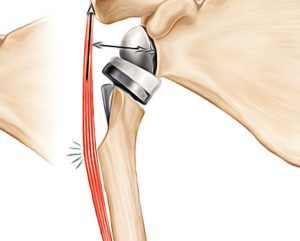 Your shoulder works very similarly to the hip joint. It is a large ball and socket joint that rotates with a range of motion that is greater than any other joint in your body. The shoulder joint is composed of ligaments, muscles, tendons and bones that work together to hold the shoulder in place and create movement.
Your shoulder works very similarly to the hip joint. It is a large ball and socket joint that rotates with a range of motion that is greater than any other joint in your body. The shoulder joint is composed of ligaments, muscles, tendons and bones that work together to hold the shoulder in place and create movement.
When a patient requires shoulder replacement surgery, they will be fitted with a metal ball that is designed to stand in place of the humeral ball. The ball is made out of stainless steel and attached to a titanium stem that helps to keep the ball attached to your arm. A polyethylene cup is used to replace the glenoid socket.
A shoulder replacement is not something that is recommended lightly. It is reserved for patients who suffer from joint dysfunction often associated with osteoarthritis, rotator cuff tears, rheumatoid arthritis, avascular necrosis and occasionally those who have sustained a severe fracture from some sort of trauma. Physical therapists will consider more conservative methods of treatment such as physical therapy, steroid injections and other medications before recommending you undertake a shoulder replacement.
Prior to deciding whether or not you need a shoulder replacement or a keyhole procedure, your surgeon will evaluate what method is best for you.
Candidates for shoulder replacement often have the following symptoms:
- Severe shoulder pain that impacts simple daily activities such as reaching above your head, washing and getting dressed.
- Loss of motion in your shoulder.
- Weakness in your shoulder.
- Pain that negatively impacts your ability to have a good night’s sleep.
- Anti-inflammatory treatments have been unsuccessful.
- Prior arthroscopic and fracture repair surgeries have failed to relieve your symptoms.
Melbourne’s best shoulder injury specialist will be able to correctly assess and advise you of the best steps to move forward with your treatment. There are four types of shoulder replacement options. This is not a choice you need to worry about. A conversation with your surgeon and a thorough explanation of your symptoms will help the surgeon determine the best surgery for you.